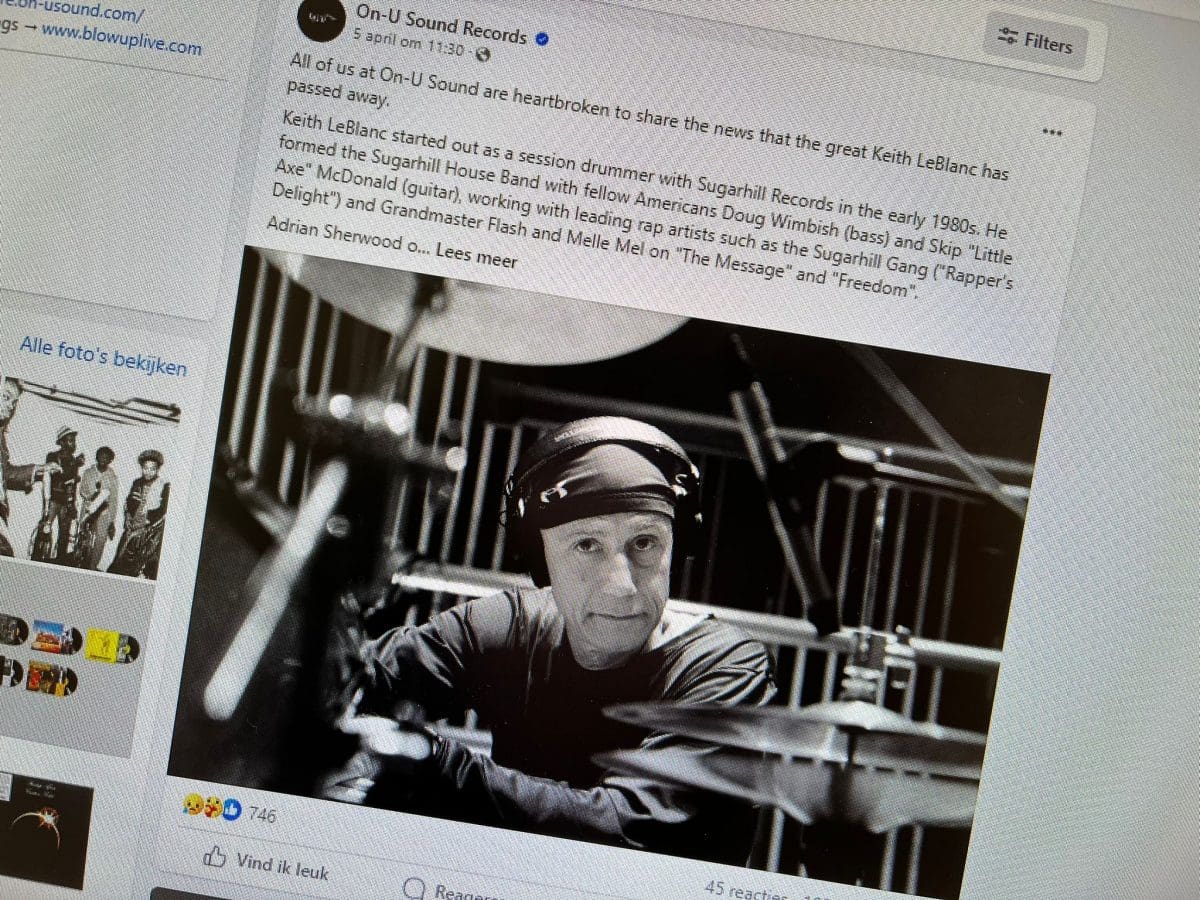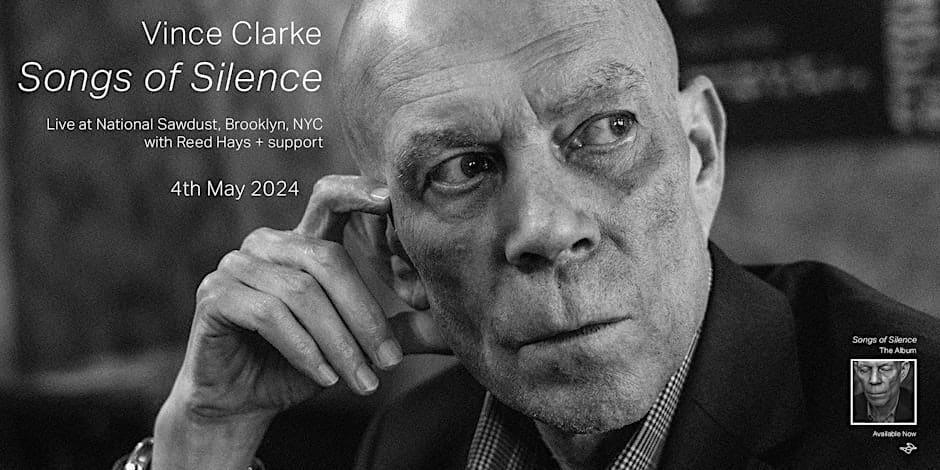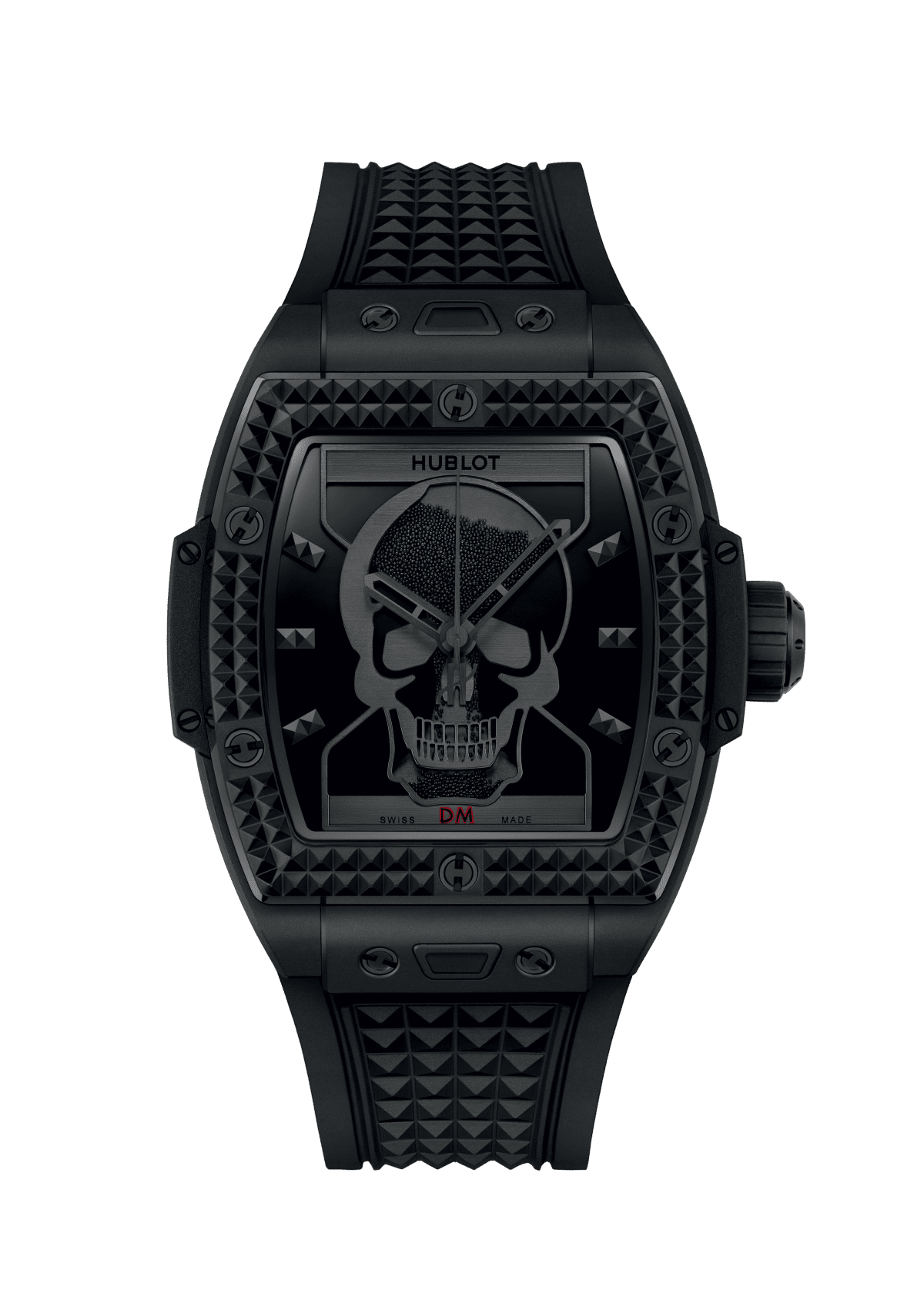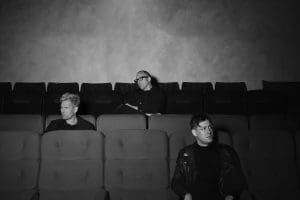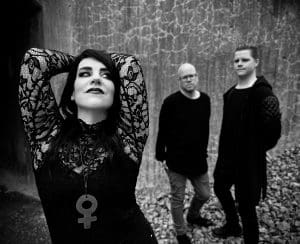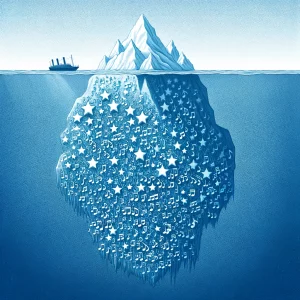Dubstar interview: ‘I think my biggest problem will be re-adjusting, if and when the time comes’
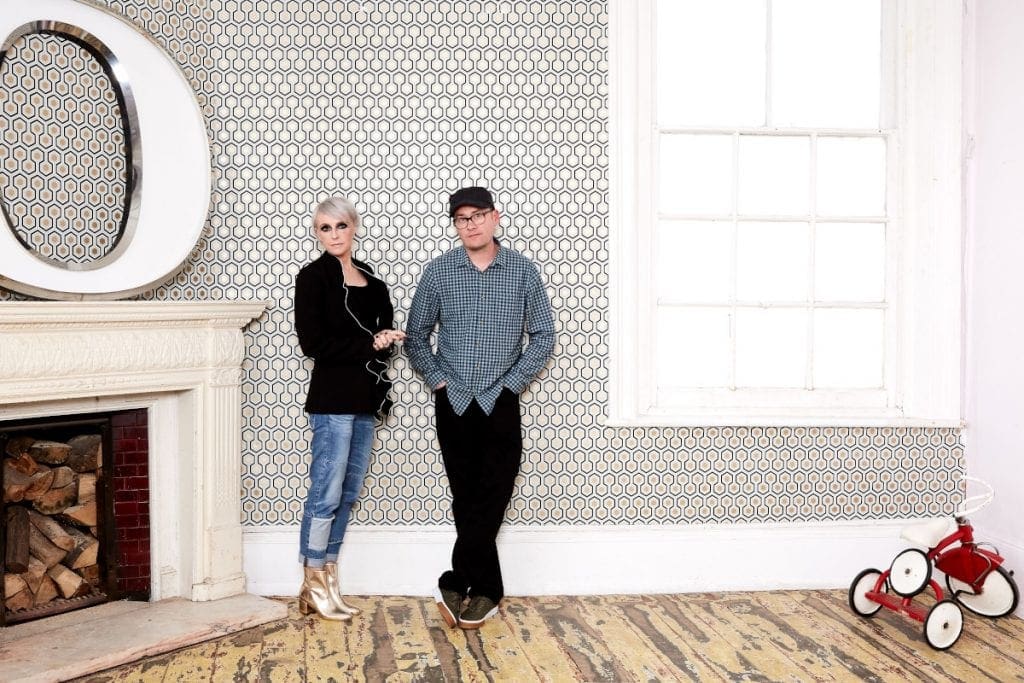

(Interview by Simon Helm) Dubstar first came to prominence in the 1990s with the kind of hummable dreampop songs that worked as well driving as in clubs.
Despite chart success, they went on hiatus at the end of the decade. Singer Sarah Blackwood joined Technique and went on tour with Depeche Mode, which led to the founding of Client, the first band on Andy Fletcher’s Toast Hawaii label. Collaborations followed with Martin Gore, Nitzer Ebb and Die Krupps, as the band rode the electro-clash wave.
Blackwood returned to the Dubstar fold and, in 2018, the act returned with a new album, One. Honed to the duo of Blackwood and musician Chris Wilkie, Dubstar’s sound maintained its classic resonance, but with updated and reinvigorated melodies.
The band’s latest release is “I Can See You Outside,” which comes with a video addressing themes like CCTV surveillance. Their previous single, “Hygiene Strip,” tackled the public health crisis. This is deeper material from a group that once got into trouble for using pictures of sexy pencil cases on their covers.
We spoke with Dubstar to find out more about creating under lockdown and their colourful history.
SL: Dubstar seems to be in a much better place as a duo. How do the two of you work together to create the new songs?
Sarah:We live a couple of hundred miles apart, so rely on WeTransfer and sending songs back and forth to each other. Chris will usually start with a template; and, if I like it and it feels and sounds good “sung,” we develop it. Sometimes the vocal suggests different areas to approach, like a key change or a word tweak, and sometimes they don’t need much development; they are almost fully formed and ready to send on to the mother ship, which is [producer Stephen Hague’s] studio.
Chris: Even the people at the end of my street seem a couple of hundred miles away nowadays. But yes, we already had a bit of practice at working “remotely” for geographical reasons. I can usually imagine what the songs will sound like with Sarah singing them, but often unforeseen ideas will emerge in response to what happens the first time she approaches it. Maybe because she hears something which I hadn’t, and her delivery suggests another layer of meaning.
SL:You have been working on new material with Stephen Hague. He seems to have collaborated with a lot of Northerners – New Order, Pet Shop Boys, OMD, Holly Johnson and Pete Shelley being just a few examples. How did you take to him, being from Yorkshire?
S: He’s very mild mannered and easy going. This time around, it was like picking up from where we left off. I can’t quite believe I’m saying this, but I’ve known and worked with him, on and off, for 25 years.
He has seen me through drunken melodramas to sober neurosis; through Dubstar to Client and back again. He even helped me design my kitchen. He’s always tried to nurture and encourage me as a person, especially during the first album, when I was overwhelmed by just about everything. He was a welcome, quiet and calming, influence; and he used to lend me books he thought would be relevant and helpful. Stephen went out of his way to put me at ease, which I massively appreciated. In all the madness, his recording studio was always a place of calm and focus.
So, the Northerner in both myself and Chris is pretty direct. We don’t need pandering to, and hope what you see is what you get – which I think works well with Stephen’s laid-back calm, on both a productive and a personal level.
C: Perhaps it helps that he’s from Maine and is essentially a Northerner himself, in U.S. terms.
He brings a tranquility-of-mind to proceedings, which is something which me and Sarah have always struggled to achieve without assistance!
SL:The new material doesn’t shy away from confronting themes lifted from the headlines, including the pandemic. How have you been coping during the crisis?
S: I have significantly narrowed my horizons to stay sane, what with ever-changing restrictions. I can’t seem to keep up with which iterations are the most recent, so I just keep my head down, stay close to home, and go out only when it’s absolutely necessary.
I’m massively introverted, anyway, so I’ve quite enjoyed nesting and making unrealistic plans for my home environment, but some of my friends have found it very difficult and I worry for them. My WhatsApp groups with my friends and relatives have become lifelines, even if all we share is yet another banana bread recipe or the latest Donald Trump meme. I see more of my parents, via Zoom, than I ever did, so I think some good has come out of it.
I think my biggest problem will be re-adjusting, if and when the time comes. I haven’t used public transport or been into the centre of town since February. Two evenings out ended disastrously in anxiety attacks, so I think a gentle re-introduction is most definitely in order.
C: I haven’t coped well at all, but making the record has been a lifeline. I liken it to any recycling process: you can take fear and sorrow, and transform them into something less harmful, or even useful.
SL:Sarah, you have sung with Die Krupps. What was it like performing a Visage song with Germany’s legendary industrial act?
S: Well, I remember the recording of it vividly!!!! About three days before, in the middle of a tour, I was given a CD of “Der Amboss” with strict instructions to learn it – which really was mission impossible with absolutely no access to a CD player. Smartphones then were still a twinkle in the eye of Steve Jobs.
So, on our Saturday off, Ralf [Dörper] dutifully appeared at the hotel just after breakfast, bundled me into a car, and whisked me off to a recording studio in Düsseldorf. I had the journey time to listen to it, on repeat, and then he told me I had to sing it in German too! I have no aptitude for languages, whatsoever, although all my German friends love teaching me very bad things to say for their own amusement.
Honestly, trying to get my Yorkshire mouth and dialect around the song left us all in fits of laughter. I could see Ralf and Jürgen [Engler] doubled over in tears through the window of the control room, especially “habe spas mit mir”! It took a long, long time to record.
I had the absolute pleasure of singing it with them onstage in London a couple of times, but I think a lot of the fans were confused as to who I was and why I was there. They were very accepting, though, and gave me a nice cheer.
And then, post gig, I showed Die Krupps how to stretch out their hip flexors in the dressing room. That was an unforgettable image of them all doing the couch stretch. So game. Love them.
SL:Dubstar were managed, at one time, by the same man who had signed Test Department and Cabaret Voltaire to major labels. How did that come about?
S: Just like Marc Almond, our first encounter with Stevo [Pearce] was in Leeds. His first words were, “See that billboard? Your name will be on there one day, in lights!”
I wasn’t bowled over, to be honest. That sort of thing doesn’t really float my boat. In fact, it would be more likely to induce panic if it ever happened. He was one in a long line of potential managers we had seen. The record label were losing patience with us. We needed a manager – needed one the day before yesterday – and we were terrified of making the wrong choice, but were also so tired, physically and emotionally. We were at the stage where the last one we had seen was the best one – and he was the last one.
Also, his girlfriend was Cleo Rocos. Cleo was Stevo’s secret weapon. Both Chris and I wanted to be in Cleo’s orbit. She was just one of “those” people: warm, fun and genuinely caring. She became a bit of a rock for me at the time: encouraging me with writing and performing; buying me CDs of interesting artists, like Dory Previn; picking up false eyelashes for me on her travels; and, most wonderfully, she used to ring me when she knew I was scheduled to be on my own in a hotel room.
She was a big fan of watching C4 Friday night comedy, especially Frasier, and Chris and I continued that tradition long after Stevo had stopped managing us. We always sent a little thank you into the universe for Cleo.
To me, then, Stevo appeared quite bonkers. He also told me he was dyslexic, and the one thing I admired about him was that, every day, he would learn a new word and incorporate it into his vocabulary. He never saw limitations, only exciting possibilities – no matter how crazy. One of his more publishable ideas was to engineer a photo opportunity in front of the Selfridges Christmas tree, with him dressed as Santa bestowing us with our gold disc for Goodbye sales, whilst the EMI executives posed as elves. In the little green suits and curly toe shoes. It never happened.
C: I was aware of Stevo as a teenager, because he was often referenced in relation to The The or Soft Cell, and I used to find his notes of wisdom on the Some Bizzare record sleeves interesting. The one he put on Soul Mining always stuck in my head: “With every kick in the face and every hurdle you pass, the rewards get greater“.
It seemed very profound and benevolent, so I suggested that he put one on our Goodbye album. It wasn’t quite as snappy, but I appreciated the lineage.
We could probably fill an entire book with anecdotes just from the period where he was our manager. I was amused that he had a literal, free-flowing fountain of Dom Perignon in his office on New Bond Street to entertain visitors, until I realised who was paying for it.
SL:It seems like narcissists are everywhere in the music industry these days. Does that mean they are winning?
S: Ha, I’ve encountered a couple over the years. I don’t think I ever will again, now I’m a little older and hopefully wiser. I think narcissists have always been with us but social media has given them a platform to thrive, and we are becoming more able to spot them. It’s that thing: the more you look for them, the more you see. Maybe social media exaggerates those traits in people, too, like a virus, which is very sad. They start as entertaining and end up being toxic, which can stir up emotions – and sometimes that’s not a good thing.
We have never been more scrutinised as a society; nor judged as individuals, particularly in media and politics. I think having a profile comes with responsibility, which some don’t realise, and it’s time we all started to scrutinise how we communicate. It used to be something we all just took for granted, but maybe the negative aspects of social media have thrown up some things we can all learn from.
C: It’s unsurprising that narcissists would be attracted to the music business or any role in public life, because it affords them attention. They’re often good at it for a while, but it’s bound to end badly, because they lack the ability to perceive how others see them.
Since you’re here …
… we have a small favour to ask. More people are reading Side-Line Magazine than ever but advertising revenues across the media are falling fast. Unlike many news organisations, we haven’t put up a paywall – we want to keep our journalism as open as we can - and we refuse to add annoying advertising. So you can see why we need to ask for your help.
Side-Line’s independent journalism takes a lot of time, money and hard work to produce. But we do it because we want to push the artists we like and who are equally fighting to survive.
If everyone who reads our reporting, who likes it, helps fund it, our future would be much more secure. For as little as 5 US$, you can support Side-Line Magazine – and it only takes a minute. Thank you.
The donations are safely powered by Paypal.

